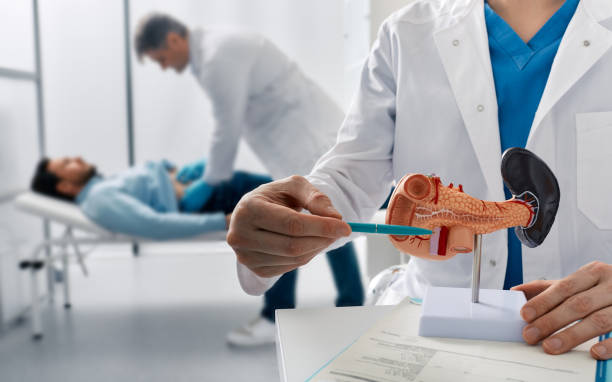
Common Conditions We Treat
Acute pancreatitis, chronic pancreatitis, pancreatic cysts, and pancreatic cancer are among the ailments for which the best pancreatic disease specialist in Parel provides skilled treatment. Under the supervision of skilled Parel professionals, each of these illnesses requires an accurate diagnosis and specific treatment plans.
Causes
Gallstones, excessive alcohol use, genetic abnormalities, autoimmune illnesses, and elevated triglyceride levels are some of the underlying causes of pancreatic diseases that the best pancreatic disease specialist in Parel finds and treats.Prompt identification of these reasons promotes improved long-term care and helps avoid problems.
Symptoms
The best pancreatic disease specialist in Parel suggests that you be aware of the following important symptoms: weight loss, nausea, vomiting, jaundice, greasy stools, and back-radiating stomach pain.Prompt intervention and excellent treatment outcomes depend on early recognition of these signs.
Diagnosis & Treatments
To detect pancreatic disorders, the best pancreatic disease specialist in Parel employs cutting-edge diagnostic techniques like blood tests, CT scans, MRIs, endoscopic ultrasounds (EUS), and ERCPs. Effective and patient-specific therapy is ensured by treatment plans that are customized according to the disease's severity and origin.
Treatment Options Include
The best pancreatic disease specialist in Parel may treat the condition with endoscopic procedures, lifestyle modifications, drugs like enzyme supplements and pain relief, and, in more extreme situations, surgical operations like pancreatectomy or cyst drainage. Holistic rehabilitation is ensured by multidisciplinary care.
Prevention & Care Tips
In order to prevent pancreatic illness, the best pancreatic disease specialist in Parel stresses leading a healthy lifestyle, which includes avoiding alcohol, stopping smoking, eating a balanced diet, and managing blood sugar and triglyceride levels.Long-term pancreatic health also depends heavily on routine examinations and early screenings.
